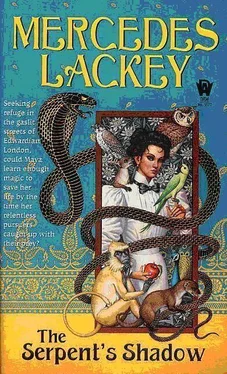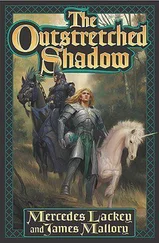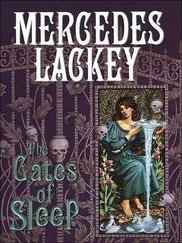It was, as she had specified with her tiny exercise of magic, a clean cab: no mud or worse on the floor, no cigar ash anywhere. And just as they settled themselves within the shelter of their conveyance and pulled their skirts well in, away from possible mud splashes, the rain began again. The cab moved off into a thin curtain of gray, the poor horse's ears signaling his dislike of the wet.
This was just as Maya had intended. It didn't do to change anything with magic, not if one wanted to remain undetected; one could only arrange. In this case, the break in the clouds that would have occurred a little later, and a few blocks away, happened above them and at the time they left the building, and closed again as soon as they were in shelter. And the cab was in good repair, the driver neither drunk nor mean spirited.
The precious certificate, now folded and safely inside Maya's handbag, rested beneath her hands on her lap. Amelia made small talk to which Maya responded with half of her attention. London, from within the partial enclosure of the hansom, was an assault on the senses of a very different sort than the heart of Delhi. In place of the scent—no, call it what it was, the stench —of hot, baked earth, dust, sweat, and dung, the smell of London enveloped them in damp, mold and mildew, wet wool, wet horse, smoke, stagnant water, the acrid tang of motor exhaust, a hint of sewage and horse droppings, and the river smell of the Thames. Harsher, deeper voices than the rapid twitter of her peoples' myriad tongues fell upon the ear. There was no bawl of livestock, only the clatter of wheels and hooves on cobblestones, neighing, the jingle of harness, and the alien noise of a motorcar or 'bus. And, of course, the atmosphere, so cheerless, so cold. . . .
But she had no other choice now; this was her home, and this strange island her refuge. If she was ever to find protection, it would be here. Her enemy was even more alien to this environment than she was.
She shook off her dark mood with an effort, turning all of her attention to her companion. Amelia was the most sensible, practical, and dauntless young woman that Maya had ever met. From the moment that they encountered each other at the London School of Medicine for Women, Maya had felt they had been friends or even sisters before, in some other lifetime. Naturally, she had not said anything of the sort to Amelia, who would only have been confused. The Church of England did not admit to the reincarnation of souls.
"Well, it will be your turn to beard the dragon in his den in another year or so," she told Amelia, who laughed.
" I am going to practice at the Royal Free Hospital," she replied. "They, at least, are open to women physicians. I'm not so ambitious as you."
"It wasn't ambition, it was necessity," Maya told her soberly. "What if Royal Free had balked? I would have nowhere to turn—"
"But why should they balk?" Amelia interrupted.
Maya gestured wordlessly to her own face, and Amelia flushed. "If I tried and failed to obtain certification at St. Mary's, then Royal Free would likely have certified me just out of spite," she continued cheerfully. "My father always taught me to try the hardest path first, you know, although if I had seen that man before I made that plan, I would have thought twice about the wisdom of it."
"I hadn't thought of that." Amelia pursed her lips. "Still, that won't do for me. St. Mary's might accept a woman physician, but they'll never accept a woman as a student. Not now, anyway. Perhaps in a few years."
"There is nothing wrong with Royal Free," Maya said firmly, "And a good many things that are right." She might have elaborated on the subject, but the cab had just turned down the shabby-genteel street that housed her home and surgery and was pulling up at the front door. Gupta, a shapeless bundle of waxed mackintosh and identifiable only by the white chalwars stuffed into his Wellingtons that peeked from under the hem of the mac, was setting the last screw into the inscribed brass plate beside her door— a plate that proclaimed this to be the surgery of Dr. M. Wither-spoon.
"I suppose we won't see much of you anymore," Amelia said wistfully, as Maya dismounted from the hansom.
"Nonsense! You'll see me on Thursday at the latest, or have you forgotten our luncheon date?" Maya replied instantly. "Not to mention that you are welcome here at any hour of the day or night. Now, you go back to your studies, while I see what Gupta has found for me."
She circled around to the driver, perched up above the passenger compartment in the weather, and handed him a guinea—more than enough for her fare and Amelia's with a generous tip. "London School of Medicine for Women, please," she told him briskly. "My companion has a class at two."
"I'll 'ave 'er there well afore, ma'am," the cabby said, impressed by the guinea, if by nothing else. He chirruped to his horse, who trotted off without needing a slap of the reins or a touch of the whip. Amelia's gray-gloved hand waved farewell from the side of the cab, and Maya turned to Gupta.
"Was this bravado or anticipation, my friend?" she asked in Hindustani, touching the plaque.
"Neither, mem sahib," Gupta replied. "We knew, we all knew, you could not fail." His round, brown face held an expression of such earnest certainty that she wanted to laugh and cry at the same time.
"Well, let us go in out of this miserable weather. Come to me in the conservatory, and tell me what has happened to make you so sure of me." She waited while he put a last polish to the plate with a rag he stuffed back in his pocket, then moved past him into the little house she had bought to shelter her odd little "family."
It had taken most of her inheritance to buy it and fit it up, and had it been in better repair, or a better neighborhood, she could not have managed it. But because it was so shabby and had required the tearing out of walls, she had been able to install a great many comforts that better dwellings could not boast. The house was lit by electric light, which was much safer than gas. Hot water from a coal-fired boiler in the cellar circulated through the house via pipes and radiators, a luxury often used to keep conservatories and hothouses warm in winter on the Great Estates. More hot water was available for cleaning and bathing at all times, laid on in the bathrooms, without the need to heat water on the stove and carry it up in cans. At last she was warm enough so that she was able to throw off her coat as soon as she entered the front hall.
She had arranged for the hallway to be painted, rather than papered, in white. Furnished with pegs for coats, a bench for waiting patients, and a small table holding a brass dish from India for calling cards, she had hung prints of some of her father's favorite paintings on the walls. The impression was warmer than that of a hospital, but not "homelike"—wise, since this was the entrance to her surgery as well as to her home.
It was scarcely possible that she would have any patients calling yet, and she longed to shed her woolen suit with the coat and revert to more comfortable garb.
Not yet. Not yet. But I shallbe rid of these confounded shoes! Why is it that attractive shoes are a torture to wear?
Hanging her coat on its peg in the hall, she passed the door to her examining room and surgery (formerly the parlor and smoking room) and climbed the stairs to the next floor. Here were the bedrooms, all alike, and the bathroom fitted up with the most modern of appointments. Her room was at the back of the house, away from street noise. The second bedroom, connected to hers, served as her parlor and sitting room.
Gupta had the third bedroom, and his son Gopal and his son's wife Sumi the fourth. Gopal and Sumi's four children shared the nursery on the floor above, where the servants' quarters had once been. Gupta had been her father's friend as well as his servant— but more importantly, he had been Surya's devoted guardian. There had been no question of whether or not the family would emigrate when Maya fled to England; she would have had to lock them all in prison to prevent them from coming with her.
Читать дальше












